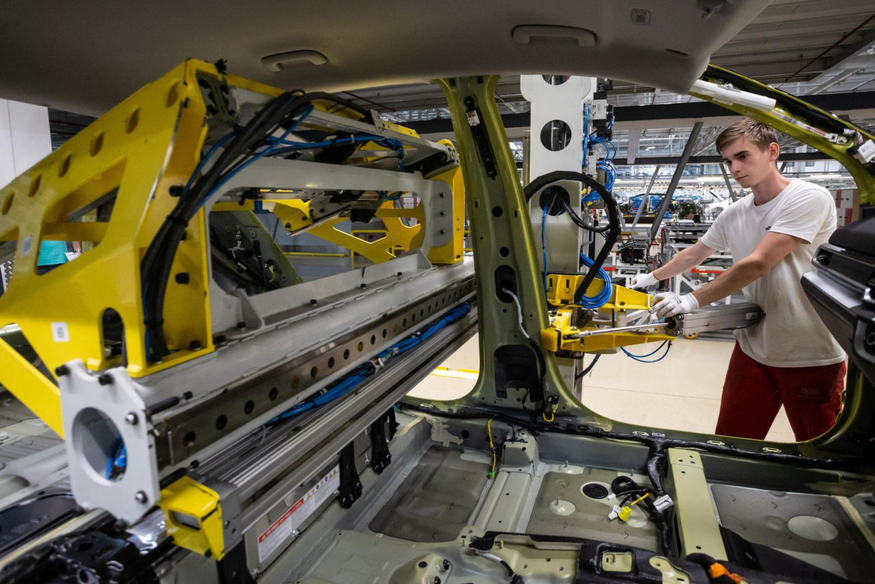
 |
| A Kia employee works on a car assembly line at the company’s auto manufacturing plant in Zilina, northwestern Slovakia. (Kia) |
Hyundai Motor Group’s smaller affiliate Kia is poised to start electric vehicle production in Europe by the end of this year at its Slovakian manufacturing plant, according to Marc Hedrich, president and CEO of Kia Europe.
“(I had a) very good meeting today with Slovakian Economy Minister (Madame) Denisa Sakova and State Secretary Vladimir Simonak,” stated Hedrich in a LinkedIn post on Wednesday. “I had the opportunity to discuss challenges the automotive industry is facing and how Kia is going to overcome them through a massive investment in our plant in Zilina, where BEV (battery-powered electric vehicle) production is going to start in the next months.”
A Kia official did not confirm the exact date for production but indicated the operation would start soon.
In July, Kia injected 150 billion won ($109.9 million) into its auto manufacturing plant in Zilina, northwestern Slovakia, to set up EV production facilities. Once operational, the plant will produce Kia’s new EV lineup including the EV3, EV4 and EV5 as well as the Niro EV, a mid-sized sport utility vehicle, sources said.
The carmaker’s Slovakian plant is its only strategic base in Europe. Since starting operations in 2006, it has produced over 5 million units as of June. It manufactures the Sportage SUV, Ceed Hatchback and XCeed Cross Utility Vehicle, exporting to major European countries such as the UK, Germany, Sweden and Spain.
With the renewed commitment, Industry watchers say Kia will strive to overcome the ongoing sales slump in its second-largest global market. From January to August, Kia’s European sales dipped 13 percent on-year to 45,147 units. Hyundai Motor Company witnessed a 25 percent drop to 35,461 units in the same period.
“Kia will have some room to expand footing in the European market as the EU recently agreed to impose hefty tariffs on China-made EV imports,” said Lee Ho-geun, a car engineering professor at Daeduk University. “While Chinese rivals struggle with losing price advantages, the company should boost sales of small to mid-sized battery-powered vehicles, the well-received car models there.”
On Oct. 4, the EU voted to implement definitive tariffs of up to 45 percent on China-made electric vehicles, which could cost Chinese carmakers additional billions of dollars to sell their battery-powered cars in the 27 EU member states. The proposed duties are set to take effect for five years starting next month.
Meanwhile, Hyundai Motor is also ramping up EV sales at its auto plant in the Nosovice region of the eastern Czech Republic, where it is manufacturing the second generation of the Kona Electric, a compact SUV popular in Europe. The Casper Electric, a smaller electrified SUV, is slated to debut later this year.
During a visit to the Nosovice plant on Sep. 19, Hyundai Motor Group Executive Chair Chung Euisun stated, “We will not hold back on investments to improve quality and safety (of cars). Despite the recent EV market shift, let’s continue strengthening our efforts toward innovation and sustainable growth.”









